Odontites vernus - Red Bartsia
Phylum: Magnoliophyta - Class: Liliopsida - Order: Lamiales - Family: Orobanchaceae
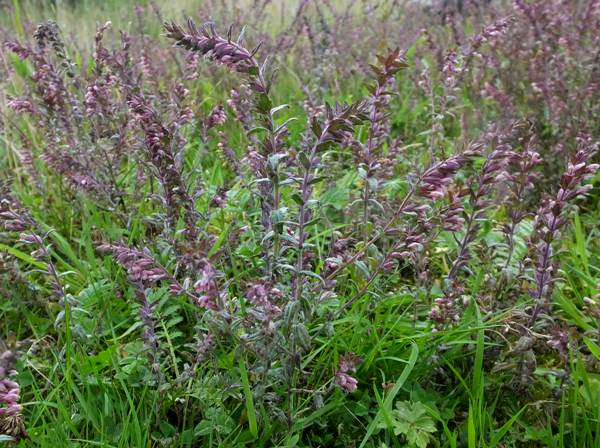
Above: Red Bartsia growing in grassland in North Wales
Description
An upright branching hairy annual wildflower, Red Bartsia grows tp typically 20 to 30cm in helght. The stems are usually squarish and the tiny four-petalled flowers are borne at the leaf axils. The flowers are pinkish purple and 8-10mm in length.
The narrowly-llanceolate, toothed hairy leaves ofRed Bartsia occur in opposite pairs along the stems.
Distribution
Red Bartsia is widespread and common throughout the UK and Ireland. It is also found in northern and southern Europe, although it is absent from some of the islands in the Mediterranean region.
In the USA, Odontites vernus is an introduced alien species, sometimes referred to as Red False Bartsia.
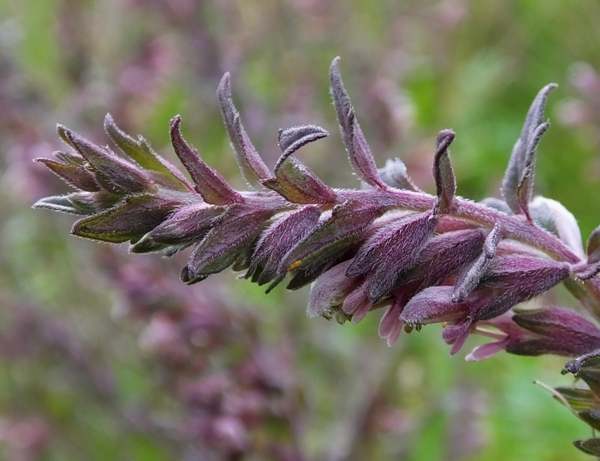
This plant is easy to overlook especially when it is growing in tallish grass.
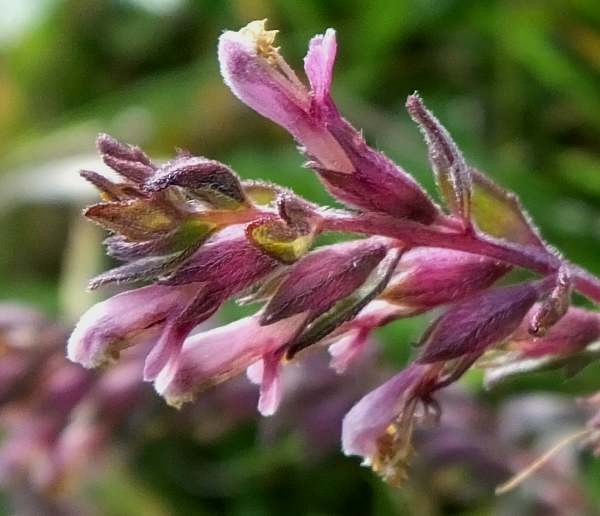
Habitat
Red Bartsia is hemi-parastic on other plant species, particularly grasses, that grow alongside it, and it is common on disturbed land and the sides of tracks as well as on the disturbed margins of farmland.
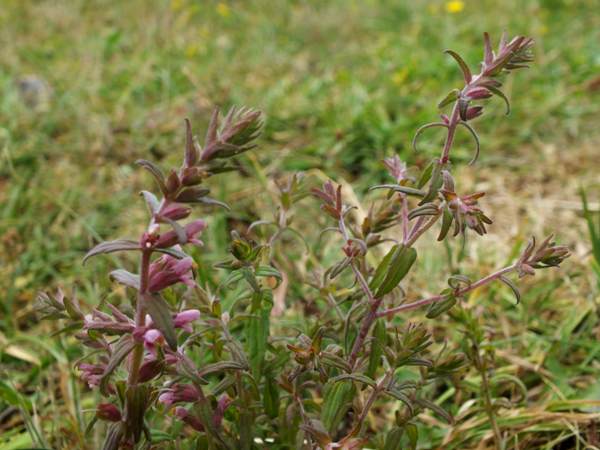
Red Bartsia flowers from June until September brightening up the landscape when many other flowers have died back.
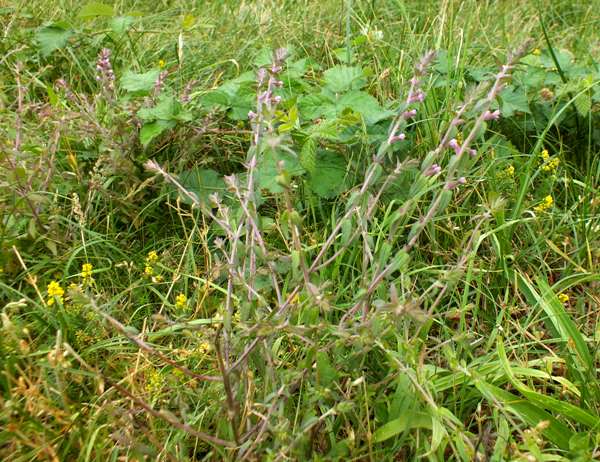
Flowering times
In Britain and Ireland Red Bartsia can be seen in flower from June to the end of September. The plants shown on this page were photographed in Wales during July and August.
Etymology
The genus name Odontites comes from Greek and means relating to teeth. This may be the plant that Pliny the Elder suggested as a treatment for toothache. Rather oddly, the specific name vernus means of spring (as in springtime), although in northern Europe the main flowering time of this species is summer.
Much easier to understand is the common English name Red Bartsia, because the leaves, stems and flowers have a reddish tinge; Bartsia is in honour of the German botanist Johann Bartsch (1709-1738), from Königsberg, which was formerly a city in eastern Germany but since the end of WW2 has been part of Russia. The Latinized form of his name is Johannes Bartsius.
Sue Parker's latest ebook is a revised and enlarged edition of Wild Orchids in The Burren. Full details here...
Buy it for just £5.95 on Amazon...
Please Help Us: If you have found this information interesting and useful, please consider helping to keep First Nature online by making a small donation towards the web hosting and internet costs.
Any donations over and above the essential running costs will help support the conservation work of Plantlife, the Rivers Trust and charitable botanic gardens - as do author royalties and publisher proceeds from books by Pat and Sue.

